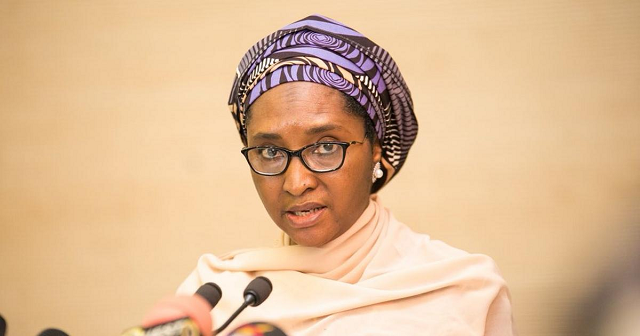Zainab Ahmed, the minister of finance, budget and national planning, says the economy is heading towards a recession.
However, Ahmed projected that the extent of the recession can be mitigated if the economic stimulus plans are implemented.
The minister told journalists after the national economic council meeting on Thursday that the COVID-19 pandemic has negatively impacted crude oil prices and “the impact has already started showing on the federation’s revenues and on the foreign exchange earnings”.
“Net oil and gas revenue and influx to the federation account in the first quarter of 2020 amounted to N940.91billion.
“This represented a shortfall of N125.52 billion or 31 percent of the prorated amount that is supposed to have been realised by the end of that first quarter. 40 percent of the population in Nigeria, today, is classified as poor; the crisis will only multiply this misery.
“The economic growth in Nigeria, that is the GDP, could in the worst-case scenario, contract by as much as minus -8.94 per cent in 2020.
“In the best case, which is the case we are working on, it could be a contraction of minus -4.4 percent, if there is no fiscal stimulus But with the fiscal stimulus plan that we are working on, this contraction can be mitigated and we might end up with a negative –0.59 percent.”
Speaking further, Ahmed said the World Bank has a proposal of $1.5 billion to states as part of the economic stimulus to cushion the impact of the pandemic.
“The World Bank maintains that the impact of the COVID-19 on Nigeria will lead to severe amplified human and economic cost, which will move the country into a recession,” NAN quoted her to have said.
“The World Bank planned a proposed package for immediate fiscal relief for the FG.
“This will also involve policy-based policy budget support for the Federal Government, focusing on measures to maintain macro-financial stability and create fiscal space for proposed stimulus.
“The World Bank package has also got a proposal of $1.5 billion for the states and this package will be dedicated to the states and it will be a programme for results which the states are already used to implementing.”
According to her, the immediate financial relief for the states will include the acceleration of an existing programme to enable disbursement by the end of September.
She estimates that each state would get between N150 billion and N200 billion.
In its 2020 World Economic Outlook report, the International Monetary Fund projects that Nigeria’s economy would suffer its worst recession in 33 years
Source: The Cable












